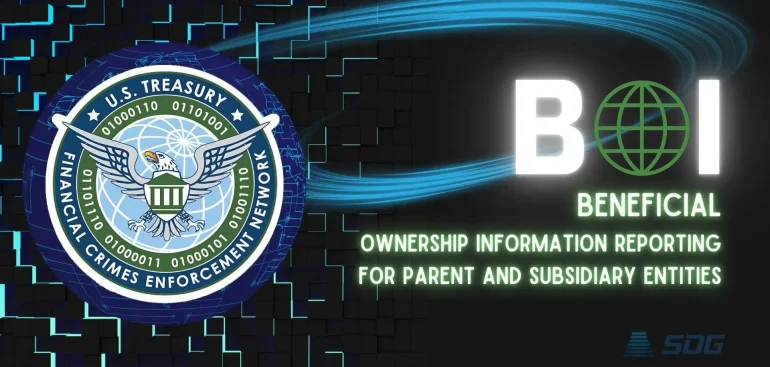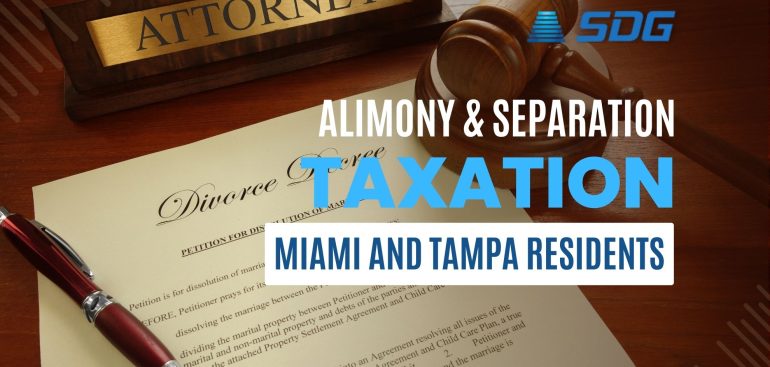Introduction:
At SDG Accountant LLC, we understand that compliance with the Corporate Transparency Act (CTA) is crucial for businesses operating in Miami, Tampa, and beyond. Every corporation, LLC, and other entity formed by filing documents with a state office must submit a Beneficial Ownership Information (BOI) report to the Financial Crimes Enforcement Network (FinCEN), unless they qualify for one of the CTA’s 23 exemptions. Failing to comply with the BOI reporting requirements can lead to significant civil and criminal penalties.
Understanding Beneficial Ownership
The CTA aims to assist national security and law enforcement officials in identifying the individuals who ultimately own or control corporations, LLCs, and certain other entities. This means that the reporting of personal information of these entities’ beneficial owners is mandatory. A beneficial owner is defined as an individual who:
- Exercises substantial control over the reporting company.
- Owns or controls at least 25% of the reporting company’s ownership interests.
The Role of Subsidiaries in BOI Reporting
Many corporations and LLCs function as subsidiaries owned by parent entities, raising questions about whether these subsidiaries must file BOI reports and who their beneficial owners are. FinCEN’s guidance clarifies these complexities, offering insights into subsidiary exemptions.
Subsidiary Exemption: Criteria and Examples
Under the CTA, a “subsidiary of certain exempt entities” may qualify for an exemption if it is controlled or wholly owned, directly or indirectly, by exempt entities such as:
- Securities reporting issuers
- Governmental authorities
- Banks and credit unions
- Investment companies or advisers
- Insurance companies
- Public Utilities

Free up your time to focus on what matters.
Growing your Income.
However, subsidiaries of entities that are exempt, because they are money service businesses, pooled investment vehicles, or other specific categories, are not covered by this exemption. For a subsidiary to qualify, it must be fully, 100% owned or controlled by an exempt entity.
Example 1: ABC Inc. and DEF Inc., publicly traded corporations, establish three LLCs as part of a joint venture. As securities reporting issuers, both ABC and DEF are exempt and fully own the LLCs, which qualify for the subsidiary exemption.
Example 2: Holdco Corporation, a privately owned holding company, owns and controls several corporations and LLCs. As Holdco is not exempt, none of its subsidiaries qualify for the subsidiary exemption. Each subsidiary must be assessed individually for other exemptions or reporting requirements.
Changes in Exempt Status
If a subsidiary loses its exemption status due to changes in ownership, it must file an initial BOI report with FinCEN within 30 days of the change. Conversely, if a subsidiary that was a reporting company becomes exempt, it must update its BOI report within 30 days.
Determining Beneficial Owners
For subsidiaries owned by entities, beneficial owners are typically individuals with substantial control or ownership interests. For instance, senior officers or individuals who indirectly control the subsidiary through ownership of parent entities may be beneficial owners.
Reporting Exceptions for Exempt Entities
When ownership interests are held through exempt entities, a reporting company can report the exempt entity’s name instead of individual beneficial owners’ personal information. Additionally, a company can use a FinCEN Identifier in place of personal information if the identifier meets specific criteria.
Contact SDG Accountant LLC for BOI Reporting Assistance
For more details about BOI reporting under the CTA, contact SDG Accountant LLC—your trusted accountants in Miami and Tampa. Our team is ready to assist with all your BOI reporting needs and ensure your business remains compliant with all regulatory requirements. Reach out to us directly at admin@sdgaccountant.com.
By choosing SDG Accountant LLC, businesses in Miami and Tampa can navigate the complex landscape of BOI reporting, ensuring compliance and avoiding potential penalties. Stay informed and proactive with our expert guidance and support.






